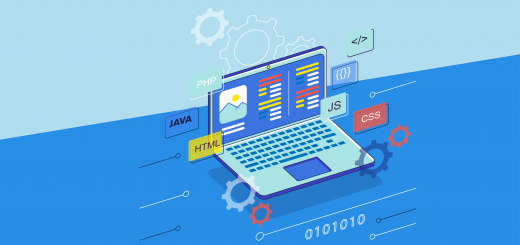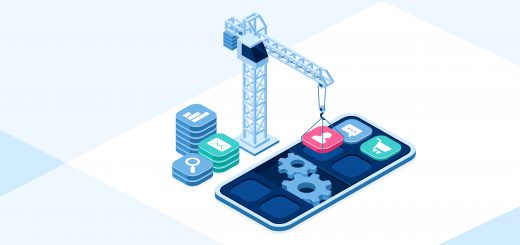Best Practices for Writing Clean Code
Writing clean code is an essential skill for any programmer. It not only improves the readability and maintainability of your code but also enhances collaboration with other developers. In this blog post, we will explore some best practices for writing clean code that will help you write more efficient and error-free programs. Whether you are a beginner or an experienced developer, these tips and techniques will surely elevate your coding skills to the next level. So, let’s dive in and discover the secrets to writing clean code!
- Naming Conventions
Choosing meaningful and descriptive names for your variables, functions, and classes is essential for writing clean code. Avoid using cryptic abbreviations or single-letter variables that can confuse readers. Instead, opt for names that accurately represent the purpose and functionality of the code element.
Use camel case for naming variables and functions, starting with a lowercase letter. For example, use “firstName” instead of “first_name”. Use Pascal case for class names, starting with an uppercase letter. For example, use “CustomerService” instead of “customer_service”.
- Code Formatting
Consistent code formatting is crucial for readability and maintaining a clean codebase. Follow a consistent indentation style, such as using tabs or spaces, and stick to it throughout your codebase. This helps improve code readability and makes it easier for others to understand and contribute to your code.
Additionally, break long lines of code into multiple lines to enhance readability. Use proper spacing around operators and parentheses to make the code more visually appealing. Consider using a linter or code formatter tool to automate code formatting and ensure consistency across your project.
- Comments and Documentation
Comments and documentation play a vital role in making your code understandable for others, including your future self. Use comments to explain the purpose, logic, and any important details of your code. However, avoid over-commenting or adding unnecessary comments that only clutter the code.
Apart from comments, consider writing comprehensive documentation for your codebase, especially for complex or critical components. Documenting the inputs, outputs, and expected behavior of functions or classes can greatly assist other developers in understanding and using your code.
- Modularity and Readability
Breaking down your code into modular and reusable components promotes code reusability and maintainability. Aim for small, focused functions or classes that perform a single task. This helps in isolating and addressing issues or making changes without affecting the entire codebase.
Furthermore, prioritize readability by using meaningful variable and function names, avoiding unnecessary complexity, and following a logical flow in your code. Consider using design patterns or architectural principles that promote clean code, such as SOLID principles or separation of concerns.
Best Practices for Writing Clean CodeWriting clean code is essential for any programmer or developer. It not only makes your code easier to understand and maintain but also improves its performance and collaboration with other team members. In this blog post, we will discuss some best practices for writing clean code, focusing on testing and debugging, performance optimization, version control and collaboration, as well as modularity and readability.
- Testing and Debugging
Testing and debugging are crucial steps in the development process. By writing clean code, you can make it easier to identify and fix bugs. Here are some best practices for testing and debugging:
- Write unit tests: Unit tests help ensure that your code functions as expected. By writing tests for each component or function, you can catch bugs early on and make sure your code works as intended.
- Use meaningful variable and function names: Clear and descriptive names make it easier to understand the purpose and functionality of your code. Avoid using ambiguous or generic names that can lead to confusion.
- Use assertions and error handling: Assertions and error handling help identify and handle unexpected scenarios in your code. By using assertions, you can validate assumptions and prevent potential bugs. Proper error handling ensures that your code gracefully handles exceptions and provides helpful error messages.
- Performance Optimization
Optimizing code for performance is crucial, especially for resource-intensive applications. Here are some best practices for performance optimization:
- Avoid unnecessary computations: Identify and eliminate any redundant or unnecessary computations in your code. This can help improve the overall speed and efficiency of your program.
- Optimize data structures and algorithms: Choose the most appropriate data structures and algorithms for your specific use case. Consider the time and space complexity of different options and select the one that offers the best performance.
- Use caching and memoization: Caching and memoization can help reduce the computational overhead by storing and reusing previously calculated results. This can significantly improve the performance of repetitive or resource-intensive operations.
- Version Control and Collaboration
Version control and collaboration are crucial for effective project management with multiple team members. Employing tools like Git enables you to monitor modifications, collaborate seamlessly, and easily revert to previous versions if necessary. This fosters a well-organized and structured codebase.
Adopting a suitable branching and merging approach tailored to your team’s workflow guarantees efficient management and integration of code changes, minimizing conflicts. Furthermore, When implementing modifications to the codebase, it is essential to document the purpose and reasoning behind those changes. This documentation aids in comprehension for other team members, promoting collaboration and understanding.
Final Thoughts
Implementing best practices for writing clean code is essential for developers to create efficient, maintainable, and easily understandable software. By following these guidelines, such as using meaningful variable and function names, writing concise and modular code, and properly documenting code, developers can greatly improve the quality and readability of their codebase.
Clean code not only benefits the individual developer but also the entire development team, as it promotes collaboration and reduces the likelihood of errors or bugs. Ultimately, investing time and effort into writing clean code will lead to more efficient development processes, improved software quality, and increased customer satisfaction.



